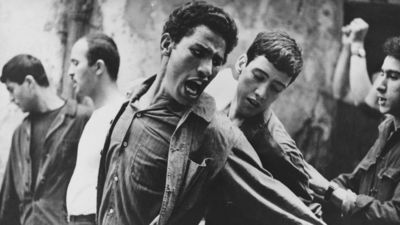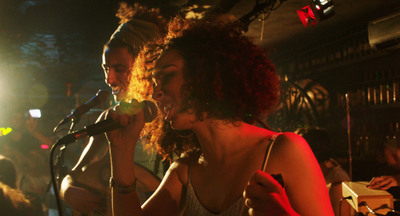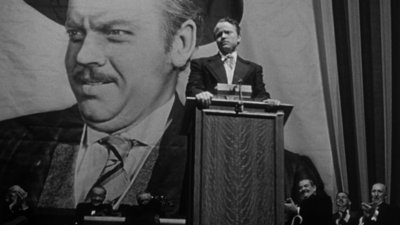
BY MATTHEW ENG |
Give AQUARIUS’ Sensational Sonia Braga an Oscar Nomination This Year
The Brazilian acting royalty talks about giving the performance of her career in an exceptional new drama from Kleber Mendonça Filho.
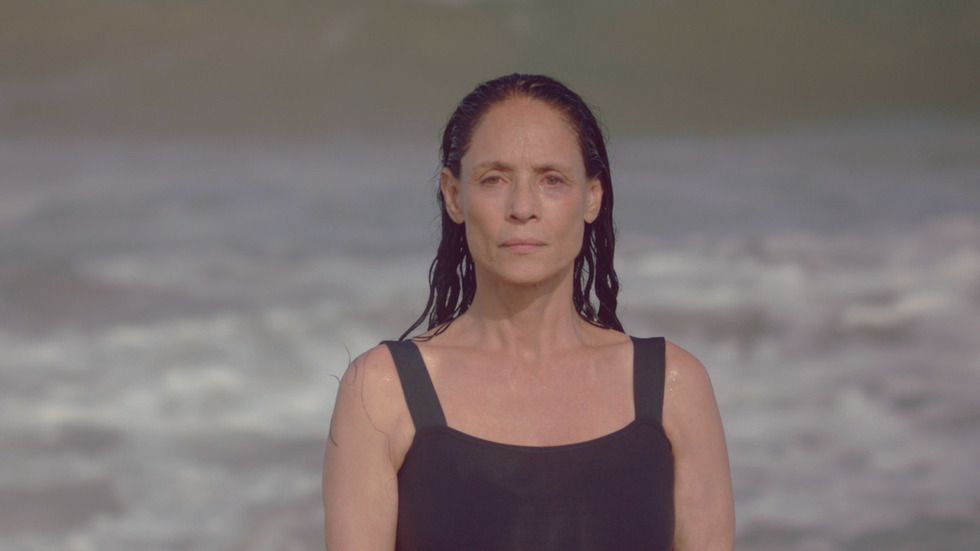
The first time I ever saw Sonia Braga on screen was in the role she is probably still best remembered for: the eponymous Spider Woman, one of three parts this luminous legend played in Héctor Babenco’s potent eighties adaptation of Manuel Puig’s Kiss of the Spider Woman. Clad in a gown of black spangles, her face a mask of stately imperturbability even as she struts and slithers, Braga remains a gorgeous celluloid vision to be watched and worshiped. She seems to exist in that magical gap between audience and screen, a shimmering representation of all the reasons why cinephiles, particularly queer ones, return to the movies time and time again. Film budgets may have gotten bigger, but Braga’s Spider Woman performance is still one of the most marvelous special effects that cinema has ever produced.
Since then, Braga has turned up in numerous films and television series, first as love interests (Richard Dreyfuss' in Moon Over Parador, Samantha’s on Sex and the City) then as maternal figures (Jennifer Lopez’s in Angel Eyes, Rosario Dawson’s on Luke Cage). At sixty-six and with over eighty credits to her name across America and her native Brazil, Braga is now at an age when most actors, particularly women, are resigned to bobbing from the shabby barrel of sitcom guest gigs and sidelined supporting parts in midrange independent productions. What a magnificent surprise that, for the first time in decades, Braga is returning to theaters in a critically-acclaimed Cannes breakout that is, in essence, all hers.
In writer-director Kleber Mendonça Filho’s sensational character study Aquarius, Braga plays Clara, a retired, well-off music critic and breast cancer-beating widow who is content to live out the rest of her days as the last remaining resident of a crumbling Art Deco apartment complex in a Brazilian seaside community. When a young property developer comes knocking on her door, asking her to sell with simpering entitlement, Clara refuses to vacate her cozy, record-lined apartment and sets off a nervy, generational battle of wills, a prolonged standoff that swells to an exhilaratingly furious finale.
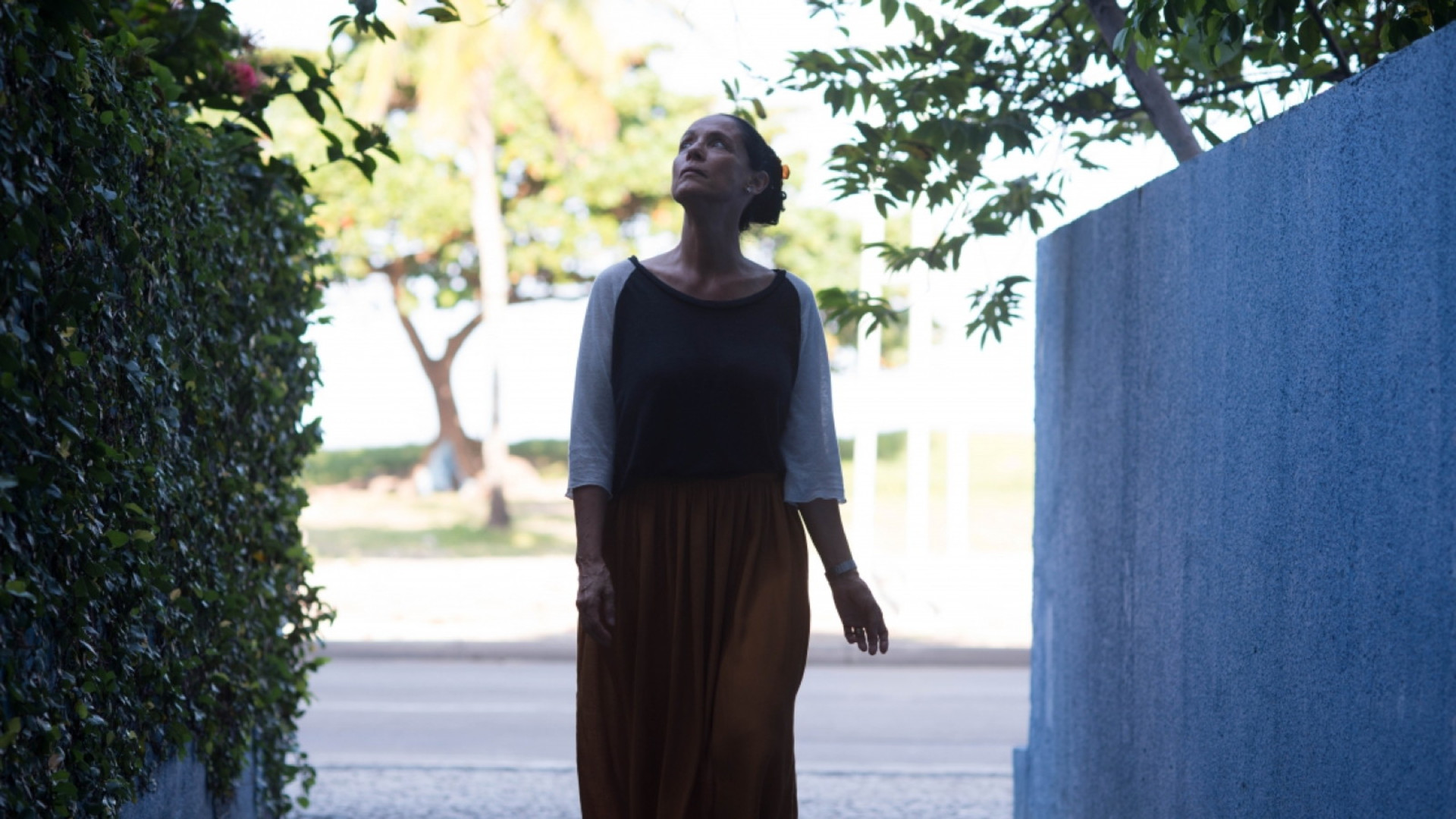
As the film's magnetic center, Braga exhibits a queenly command over the film, negotiating Clara's multitudinous moods, impressions, and impetuous urges with the discipline and dynamism of a true and timeless master. Braga is sly, sensual, simmering, heartsore, and, finally, triumphant, delivering one of the year's mightiest acting achievements, a wondrously understated performance of kaleidoscopic complexity, leonine intensity, and soaring beauty. In an ideal world, Braga’s spiky and soulful tour de force would be at the very top of The Academy's Best Actress ballots come voting time.
I caught up with Braga during an evening screening of Aquarius at this month’s New York Film Festival, where the film is making its American premiere before a limited theatrical release that kicks off on Friday, October 14th. As she kicked off her heels and changed into a pair of Nikes, Braga opened up about this out-of-the-blue opportunity, the fears and pressures of a starring role, and why, like Clara, we could all serve to better appreciate the past.
Aquarius is the first project in a long time that has really placed you at the center of a story. I’m so glad you’ve gotten this spotlight.
Me too. I sincerely cannot even tell you. [But] it is understandable that I wasn’t out there. I never became a producer. Many actors today have to become a producer and have to do their own projects and work like crazy. Some don’t need to do anything. Things just come to them every year. Like, Excuse me? She did five films this year? How? But so many, many actors have to become producers or writers to do those little films that go to little film festivals and fight so much to be in the spotlight. I just decided not to. I’m happy not being an actress. Very happy. Being a person is good enough for me. The only thing I want is to be a good person.
I say I’m not an actress and people get mad at me. But when an actor is an actor, they get really crazy if they don’t work. I think I always believed that I’m an other kind of artist, more connected to visual arts. I love so much the making of movies. When somebody asks me to be part of [a film], they usually ask me as an actress because I don’t have any other kind of brain. I’m not gonna deal with the camera, [although] I could be a decorator or work with extras. That’s actually a good idea. But that’s what happened. That’s why I was away for so long… Although, I wasn’t really. I was doing a lot of work.

What kicked off your involvement with Aquarius? How did Clara come into your life?
There was a meeting after Kleber wrote the screenplay with the people who are my friends now, this amazing group of collaborators, the DP and other people from our department. And everybody read it and everybody came back and said, “Wow!” And [Kleber] goes, “Who?” And they go, “Hmm…” And the DP says, “What about Sonia Braga?” And [Kleber] goes, “Mmm… Good idea.” So they found me and they reached out to me, through a friend, and sent me the screenplay. I read it and it was the best screenplay I ever read in my life, from the first page to the last. [Kleber] says I answered in 48 hours, but it was much less than that. As soon as I read it, I called [him] and said, “What do I have to do?”
How did you find the character?
She found me. I didn’t have to find anyone. She kind of came to my house and said, “Let’s go!” [Laughs]
I know that the cast rehearsed pretty extensively, as per Kleber’s wishes. How did these rehearsals open up Clara to you?
I first met Kleber by Skype. We start talking and he says, “Look, we are going to rehearse for three weeks and we shoot for four weeks.” And I go, “Kleber… I’m really scared of rehearsals. I don’t like it. I don’t know how to work without cameras.” He says, “No! It’s very simple.” I say, “No, it’s not simple. There’s no simplicity.” I always get scared and don’t know how to read. It’s complicated [for] me to deal with actors because they’re always so prepared. And he says, “Don’t worry!” And I said, “I’m not worried. I’m warning you.”
And the next day, he comes and tells me, “Sonia, I love working with people who aren’t actors.” And I say, “Fantastic! Because I’m not an actor either.” So we were gonna work with people. This is my way of working. I don’t come from an academic world of acting. I just come from intuition and I’m artistic in that way. So I was very happy with [that] idea.
When we got to the rehearsals, the process didn’t feel like rehearsal. It felt like we were friends talking about good friends, like the characters were good friends of ours. It was a very unique process for a director, the way he [drove] us to talk. He has incredible perception. He’s an observer. Actually, I think he’s a scientist, you know? [Laughs] And he can really observe social behavior in a deep way. [His films] come from his observation of people and they way they act. Not acting in movies, in but in life.
The rehearsal went so fast and I told him when we were finished, “Kleber, remember I told you I don’t like rehearsal? I learned to love it and I’m going to miss it.” And then we go to the movie set — the house, the apartment — and it was like opening the door to the imagination. When we got to the apartment, [I] just recognized everything. It was like Clara was coming back. You know when you’re away for a while and you come back home and you go to the places that you know and have this connection [to]? I was never in that apartment before. I knew that the records are here, sofa is here, window is here, ocean is over there [because] we [clarified] that in rehearsal. But when I got into the apartment, I had the feeling that I had went away for a while and I was getting home. I could recognize the space and where [Clara] loves to sit and read. I could recognize my hammock, I could recognize the view. And I had never been there before. So, mystery!
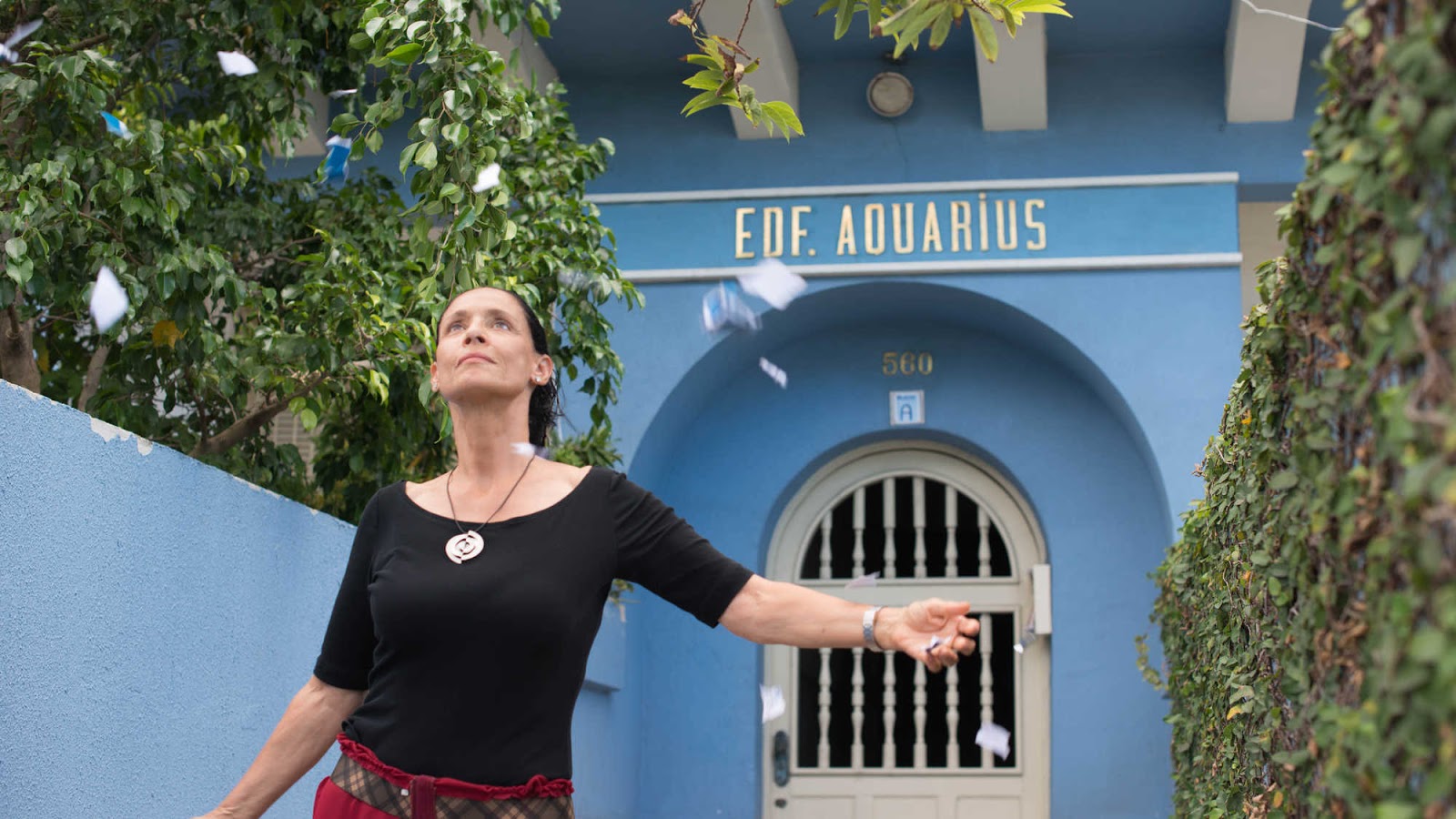
After the prologue, you appear in every single scene of the movie, which I’m sure must have been demanding in more ways than one. How did you personally prepare yourself for such a formidable shoot?
Acupuncture every week! Every week. Well, there’s nothing [I] could do [about it]. Kleber doesn’t like when actors memorize lines. And there was a point when I said, “Kleber, I think I have to [memorize].” And he said, “Don’t worry.” I said, “I have to worry — a lot. It’s too much responsibility.” And I say, “So, I have to ask if you [will] allow me to and I promise I’ll be open to [changing] anything.” [The shoot] was like this: I would be [in the apartment] and one actor would come and leave and then another actor would come.” But [the other actors] would come with the scene prepared. So, I thought I needed to be as prepared as they were. And so finally, [Kleber] said, “Okay, Sonia, do what feels comfortable.” So that’s what I did. I went through the script, not memorizing but [more] knowing the dialogue…
I always believe that if the words are in your head, you’re free. I don’t like improvisation. I do not like it. My tendency is to be quiet, to listen to other people because actors overlap and nobody listens to anyone else. So what you saw [in Aquarius] is the screenplay, the whole screenplay. I told [Kleber], “This screenplay is so amazing. The words are like music. You don’t change notes in music. So let’s play it that way.” And that’s the way it worked. And it was absolutely fantastic. When we were filming, the lines just came [out] because we knew the lines. It felt like a conversation.
All my life — in Portuguese, in English, whatever — I’ve been scared of words. I did soap operas. And I did sometimes thirteen pages, one scene. But when I got Aquarius, I asked Kleber, “Can I do this amount of lines?” And he said, “Absolutely. I don’t see any problem for you to do this.” Soap opera is one thing. Movies are different. You know, in soap operas, you have a sort of rhythm, a way of talking. If you look at American movies, they have gotten further away from how people talk in real life, you know? They try to sound real, but they don’t. And in Brazil, I find that too. Because they work in soap operas, there is the same rhythm almost. And some people begin to talk like soap operas because they watch them so much. They’ll go, “Oh, how good to see you here!” And it’s so fake! [Laughs]
But Kleber made us so human and so unaffected. He directed us like a musician tuning his instrument. We played a lot with going against [the emotions] of a scene, like not crying in places where you are expected to cry. Whatever it was supposed to be, we would go against that. And it was so much fun! I just felt the way you should feel when you go to work as an artist.
One of the things that I love about Aquarius is that the screenplay shows us every single person within Clara’s life — children, friends, family, acquaintances — without feeling the need to give us extensive histories or deep explanations of each relationship. What we learn emerges casually, as it does in life. As the figure in the middle of all this, how did you personalize these onscreen connections with your fellow actors so that they feel truly authentic and intimate to an audience?
That’s what life is. We react differently to different people based on how they treat [us]. Kleber, from the beginning, wanted the camera to behave as if it was always reflecting her point of view about people. There’s a scene that I love, near the end, where Clara is mad. She’s boiling and doesn’t know what to think and goes to get a glass of water and chugs it down. And [then] her grandson comes into the corridor and she goes — [Cooing] — “Oh, meu amorzinho [“my little love” in Portuguese]!” Her relationship to this person is very special and she needs to preserve that.
My sister is a grandmother and the other day I called her. I said, “Where were you? I tried to find you. You’re not home?” And she says, “No, I missed João [her grandson] so I came here to see him!” And until he was born, she was different. And although she has problems and everything, you can say the magic word, João, and she melts. So, Clara is a human being. And she reacts to people as we people do. When a character doesn’t change, if she’s just strong, strong, strong, that’s not so real. I think what you see is more like a documentary of how people really are.
After such a long and diverse career, what are you looking for in roles these days?
I think some other woman will find me, like Clara. I hope so. I would like to do something where I don’t have to put on makeup, like I did with Clara… I would like to do something that talks about how much women go through, which is a lot. [Laughs] It’s a lot to be out [in the world], physically. And I so disagree with what’s going on. We were better in the sixties and seventies, I think, in John Lennon’s time. We started a world movement of dropping everything. It was about loving each other and solving the problems, like the George Harrison concert that saved so many lives in Bangladesh. Good things were coming out of artists. And we hit some wall and went back all the way to moralism and having women be so dressed up. So, I hope we get better things for women — more place. A girl told me, “We don’t see many characters like [Clara] in the movies.” And she’s right, but they’re in life! They’re prime ministers, secretaries of state. They are running for president or they are president and then they’re being impeached. The women are there but they’re not in film. In a certain way, the industry has to work harder to bring more of these subjects to the pictures. It would be good for everybody, I think.
Aquarius opens in New York City this Friday, October 13th, at the Angelika Film Center and Paris Theatre.
